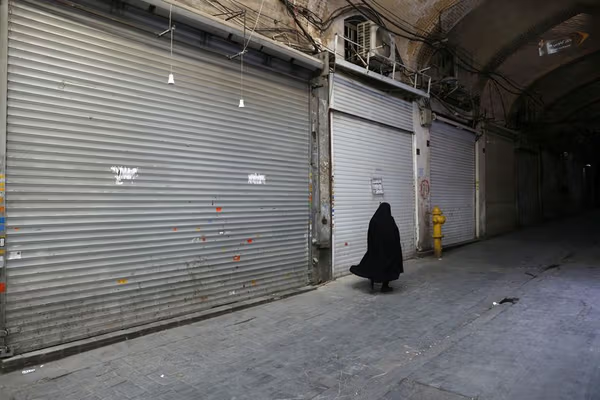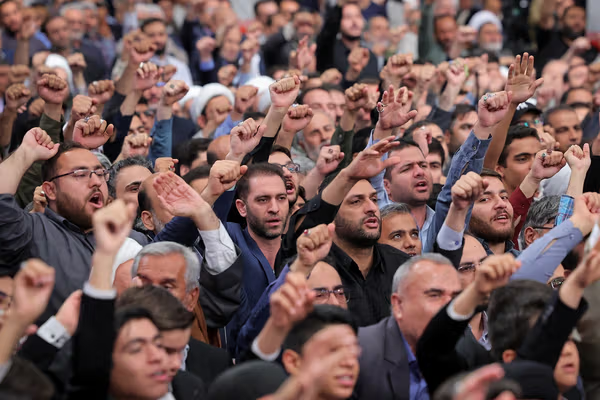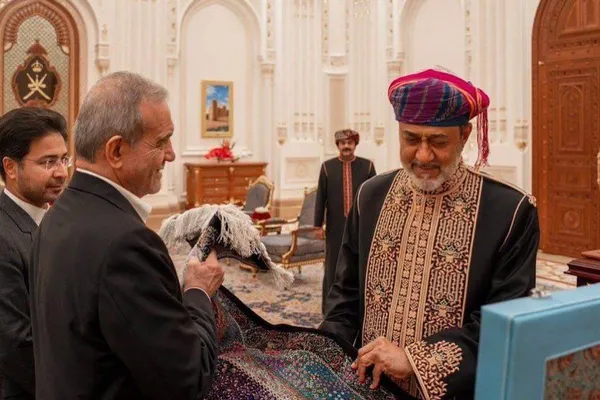
Ceasefire brings calm but reveals Iran's bitter divides
The ceasefire between Iran and Israel brought relief to millions—but also sharpened fractures within the Islamic Republic and among its opponents.

The ceasefire between Iran and Israel brought relief to millions—but also sharpened fractures within the Islamic Republic and among its opponents.

I’ve spent time in Evin, Iran’s most notorious prison, the one Israel bombed on Monday. Half a dozen of my closest friends have been there too. Do we want it flattened, turned into a park? Yes. Are we pleased it was bombed? No.
The question of succession has taken on new urgency in Tehran since Israeli missile strikes began and the Supreme Leader Ali Khamenei reportedly moved to a secure location as he was threatened by Israeli leaders and President Trump.
Iran’s political factions are in open conflict after the US strike on the Fordo nuclear site—hardliners are demanding military retaliation, while moderates and reformists warn of catastrophic consequences.

The war may have begun as a clash between Israel and the Islamic Republic, but for many Iranians now caught in the crossfire, it has become an intimate reality, marked by both grief and rare solidarity.

Israel’s airstrike on Iran’s state broadcaster IRIB may raise legal questions for scholars of war, but for many Iranians, it felt like a long-overdue punch to the face of the Islamic Republic.

"The contrast between the defiance projected on X by Iran’s Supreme Leader Ali Khamenei and his appearance in two recent video addresses—broadcast from what appears to be a bunker—could hardly be starker."

Panic-stricken residents began fleeing Tehran on Sunday as Israeli strikes and air defense fire rocked the city, sending thick plumes of smoke into the skyline of a capital unprepared for war.

A confidential report from Iran’s oil ministry appears to show a widening gap between domestic fuel production and consumption, highlighting growing pressure on the country’s energy infrastructure.

Supreme Leader Ali Khamenei has publicly rebuked Iran’s parliament for excessive oversight and political infighting, urging lawmakers to ease off ministers and help the country strike a united front.

A senior Iranian lawmaker has issued a rare and sharply worded rebuke of the country’s entrenched corruption and perceived cronyism, warning that public anger over inequality and elite privilege is growing.

Faezeh Hashemi, a prominent critic of Iran’s ruling system and daughter of former president Akbar Hashemi-Rafsanjani, has stunned many by saying she would prefer Mojtaba Khamenei as Supreme Leader—if there must be one after his father.

The arrest of a top cleric’s family members has done little to convince many Iranians that the judiciary’s anti-corruption drive is more than symbolic, despite praise from conservatives and some reformists.

People in Iran are often accused of contributing to the country’s economic woes through wasteful habits—not just by officials, but by one another. But how much truth is there to these claims?

The location of a proposed uranium enrichment consortium to help resolve Iran's nuclear impasse is emerging as a central point of contention, as Tehran insists enrichment must occur on its own soil.

Tehran’s response to Washington’s proposal to halt uranium enrichment in exchange for sanctions relief has been marked by deep distrust and combative rhetoric—but not a complete break from diplomacy.

Iran has been without an economy minister since March—and may remain so even longer—as President Massoud Pezeshkian’s nominee faces mounting opposition from hardliners inside and outside parliament.

A new US proposal for a nuclear agreement appears to have united all corners of Iran’s political scene in opposition, with reformist media calling it “pressure diplomacy” and hardliners denouncing it as a trap.

Signs of unease are surfacing in Tehran as the two-month clock reportedly set by Washington to reach a nuclear deal runs down and European powers move to revive UN sanctions suspended under the 2015 agreement.

The truckers’ strike is one of Iran’s largest labor protests in recent years—halting freight, disrupting supply chains, and exposing deeper undercurrents of discontent in a nation already under economic strain.

The softened tone of Tehran’s statements on nuclear negotiations with the United States, along with unprecedented remarks from media commentators, suggests Iran may be open to a "suspension for suspension" agreement with Washington.

The path forward in Tehran-Washington nuclear negotiations remains uncertain, but Oman has reportedly made two separate proposals to Iran that could provide a potential breakthrough in the stalled talks.